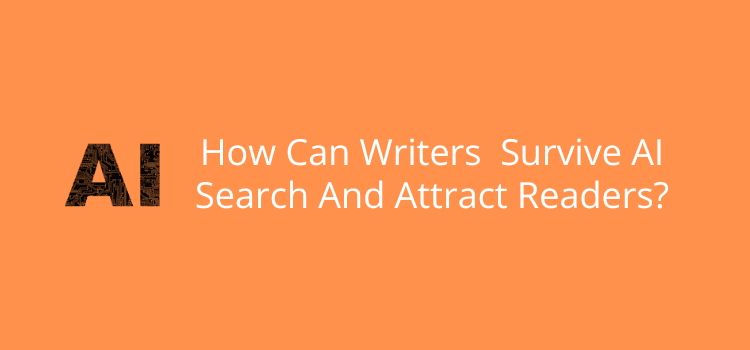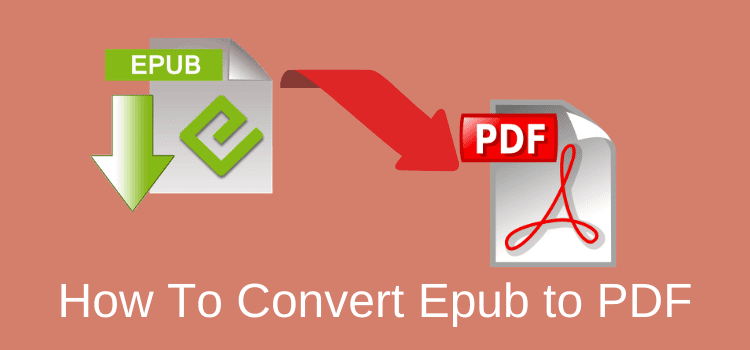
Yes, it’s tough right now, but writers can survive AI search. However, you’ll need to change your approach and mindset to find new readers from now on.
If you have noticed fewer people are finding your articles or books recently, it’s no surprise.
AI-generated search results that summarize information and give quick answers mean searchers have less reason to click through.
It’s extremely frustrating, but it isn’t the end of the world. It’s only that the world is changing rapidly for everyone, including writers and authors.
What AI Search means for writers
AI search isn’t about search engine changes or updates. It’s been a sudden and radical shift in how people search for and find information.
The days of showing a list of ten blue links per search page are over forever.
AI search engines, tools, and assistants now find and summarize content instantly.
While it’s great for searchers, it means people often get the answers they need without clicking through to an article or blog post.
For writers and authors, it’s been an enormous and negative change.
Your writing could well be part of the information AI outputs. However, you will rarely get a link to your website, and your name may not get any credit.
It feels like AI is stealing your knowledge without offering readers a link to read your original version.
But this is the new reality that affects everyone who publishes content online, from bloggers to authors promoting their books.
It also means that all your carefully chosen keywords and acquired backlinks don’t have the same impact as they once did.
While all this might sound discouraging, understanding how AI search works is the only way forward now. The sooner you adapt to AI tools, the better chance you’ll have of attracting new readers.
Why traditional SEO isn’t enough now
AI search now isn’t about another Google or Bing update or algorithm change.
It’s a complete, total, and irreversible shift in how people find information online, which is as problematic for search engines as it is for publishers.
The good old days of scrolling through ten blue links on a search results page and clicking through to different sites looking for an answer are gone for good.
Now, AI search engines and chat assistants can grab all that data from across the web (or from the links on a search result page) and summarize it all for you instantly.
You can only say that it’s fast and efficient, and that people are adapting quickly and using it more and more.
But for writers, authors, and publishers, it’s a massive and disturbing change that AI is training on your writing.
That’s why all the sound SEO practices that were so successful in the past are now almost meaningless to AI retrieval.
AI crawlers don’t worry about focus keywords, keyword density, internal links, backlinks, and meta descriptions. They are only interested in text that can answer a user’s question or prompt.
But it’s a tricky balancing act right now. Search engines can still deliver organic traffic for you, so you still need to please them.
However, you’ve probably noticed a sizeable drop over the last couple of years.
What this means is that we’re in a transition period where AI search and traditional search are competing with each other, and publishers and writers need to find ways to leverage both.
The good news is that writers can survive AI search by adapting their writing, website, blog, or online marketing to try to get traffic from both.
Traditional SEO practices still count a little, so you should keep these habits, but it’s not enough to attract AI traffic.
To get the attention of AI bots, you need more information, more content, more answers to questions, and more natural, conversational writing.
Practical strategies to survive AI Search

How can you try to keep your writing visible when AI search seems to be swallowing up the whole internet?
The only way writers can survive AI search is to think differently. Visibility online in the future will no longer be about ranking keywords.
It will be about factual, useful, valuable, quotable, and memorable text that AI systems can use to satisfy prompts and queries.
Here are some ideas you can consider.
1. Don’t block AI crawlers and bots
It’s natural to think that AI is stealing your writing, because it is. But blocking access to your writing is counterproductive.
The future of online search is AI, not search engines, so you need to make your work available.
Search engines like Google, Bing, Yahoo, DuckDuckGo, and all the rest are becoming answer engines, and they all rely on AI crawlers now.
2. Write for people and answer questions clearly
AI tools and assistants work best with clear, understandable writing. They pull short texts that seem to be concise, convincing answers.
That means writing in a natural, conversational voice and making sure your key ideas are easy to summarize.
Use subheadings, numbered lists, and bullet points to make your information easy to extract.
3. Concentrate on your topic, not your word count
The days of stretching out articles to 3,000 words to get more keyword density and extra queries are disappearing.
Covering a topic doesn’t mean a long word count. It now means covering a subject well. It might take only 300 words or 1,000 words.
The only measure is that you answered the question fully or offered the best advice. Focus on words that count, not on your word count.
4. Publish on multiple platforms
If you’re only relying on your website or blog, you’re at the whim of ever-changing algorithms and search methods.
Repurposing and adapting your content for other platforms like Medium, Substack, LinkedIn, or Pinterest can help you spread your reach much further.
These platforms all have different ways of attracting readers, so use that to your advantage. It also opens up more opportunities for AI to discover your writing.
Spread your words as far and as wide as you can to attract readers from multiple avenues.
5. Don’t fret yet about AI links
You’ve no doubt noticed that AI summaries are a bit mean with linking to their sources.
However, I believe that this will change over time. Up until a year ago, I rarely saw an AI link referral in my site analytics.
But now, I’m seeing more and more traffic each month coming from ChatGPT, Bing Copilot, and Perplexity.
6. Don’t look back and hope it will all return
Yes, like you, I used to get a lot more traffic in the past.
But when you stop and think about it, it was very often traffic from people hunting for an answer. You’d have to go back to your traffic data, but I would suggest that the majority didn’t stay long.
Why? Because they were relying on multiple search engine links to guide them, and the process was slow and frustrating.
If they didn’t find the answer in your article, they moved on quickly to other sites.
That’s the principal reason traffic has dropped for most online publishers. People don’t need to check ten sites to find an answer any longer because AI search gives them the answer they are looking for, instantly.
It has been a catastrophe for ad-supported sites, as even those brief visits were enough to trigger ad income.
But there’s no going back now because AI search is here to stay.
7. Keep writing and publishing
AI can summarize, but it can’t think originally.
That’s your big advantage, and the only way you can survive going forward.
Things will keep changing and evolving, and no one can say they can keep up and modify the way they work every day to suit a new master.
Stick to your ideas, experiment, but always be original.
Keep writing, but write and publish better and smarter.
Protecting your writing from AI
Can you protect your writing from AI? Unfortunately, the honest answer is no.
When you publish anything online, it’s practically impossible to stop AI crawlers and bots from using it for summaries and answers.
Even if you do block bots, new ones will keep popping up all the time.
The only thing you can do is clearly show your ownership.
Make sure your name is prominent in the byline at the top of your articles, and that your author bio appears below every post or article you publish.
Also, always use text links in your articles to a few of your other articles or posts.
Then, even if AI borrows some of your text, readers have a chance to trace it back to you.
Conclusion
AI is affecting almost every profession or activity, so as a writer and publisher, you’re definitely not alone.
Trying to fight all the changes is a waste of energy, because change is happening rapidly, and it has no reverse gear.
The only way writers can survive AI search is to adapt as best as they can. And honestly, then hope for the best.
Search engines are almost finished and will disappear in the near future.
That’s why we all have to accept the change to AI, and move forward as best we can.
Related Reading: 10 Free Tools To Check If Writing Is Human Or AI-Generated
Share This Article


